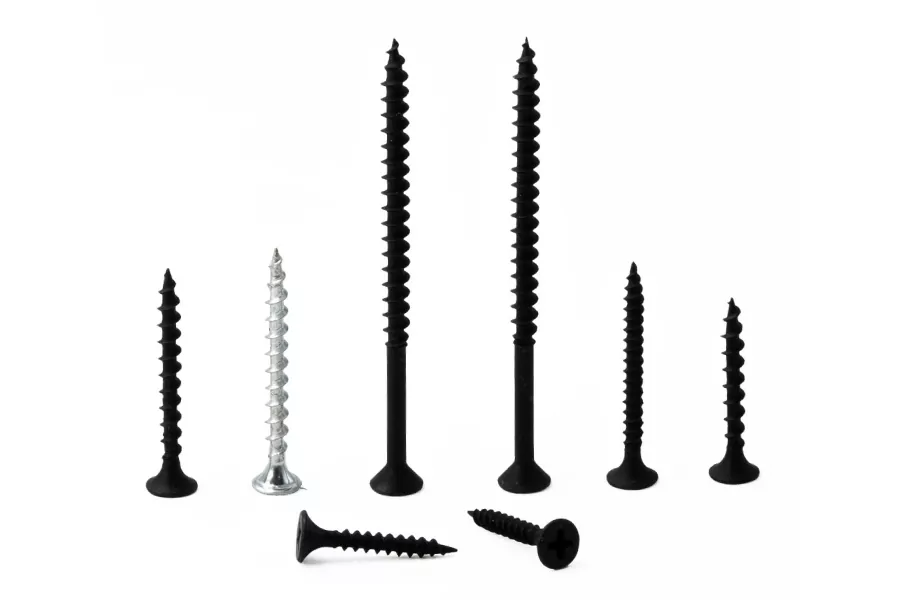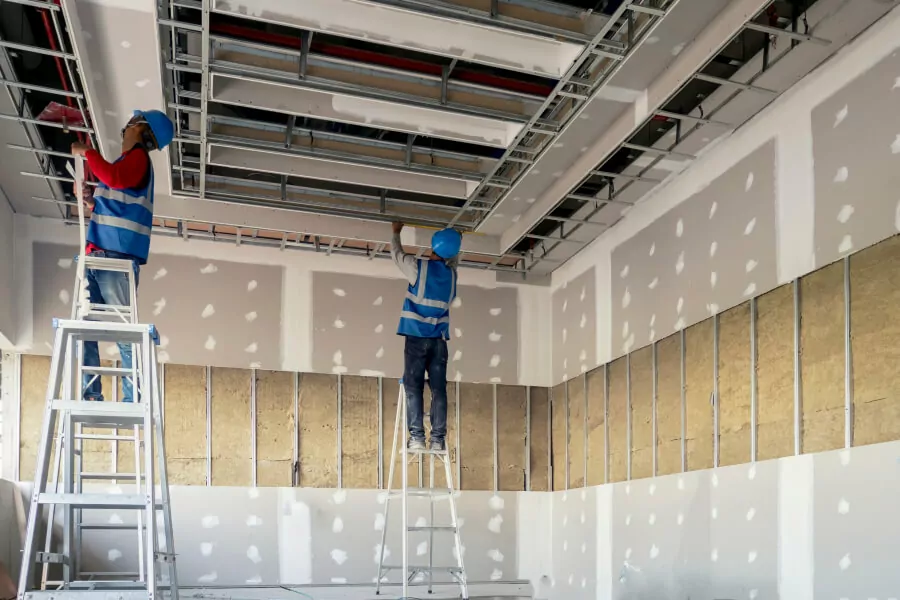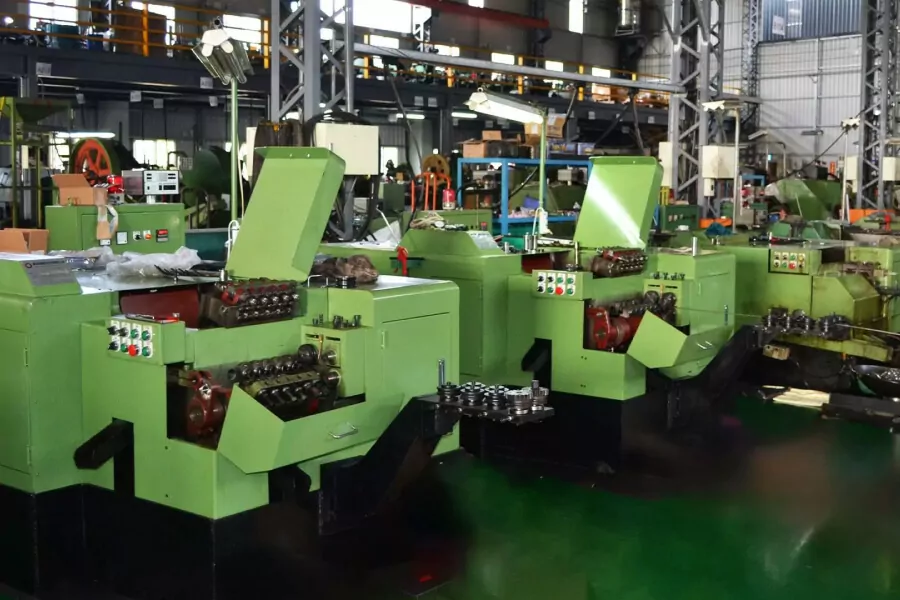
2024 Comprehensive Guide to Drywall Screws for Wholesalers and Construction Suppliers
- Drywall Screws
Drywall screws are a fundamental component in construction and building projects.These small yet essential items play a vital role in creating interiors that are not only aesthetically pleasing but also structurally sound. Taiwan has become a hub for manufacturing high-quality drywall screws, which are essential for wholesalers and building/construction supply companies serving markets in Canada, Australia, the USA, and the UK. This guide offers a comprehensive look at drywall screws, helping you understand their types, uses, and how to choose the right screws for your projects.
Table of Contents
What is a Drywall Screw?
A drywall screw is a specialized fastener used to secure drywall panels to wood or metal studs. Characterized by a sharp point and wide threads, it ensures a firm hold and easy penetration.
How do I choose the right drywall screw?
1. Consider Thickness
- 1/2-inch drywall: Use 1-1/4-inch or 1-5/8-inch screws.
- 5/8-inch drywall: Use 1-5/8-inch or 2-inch screws.
- 1/4-inch drywall: Use 1-inch to 1-1/4-inch screws.
2. Account for Stud Material
- Wood studs: 1-1/4-inch screws are common.
- Metal studs: Shorter screws, like 1-inch, may be better.
3. Aim for Stud Penetration
Choose a screw length that penetrates the stud by at least 1/2 inch.
4. Check Specifications
Always consult manufacturer guidelines for precise recommendations.
Additional Tips
- Use coarse-threaded screws for wood studs, fine-threaded for metal studs.
- Choose #6 gauge for standard studs, #8 gauge for older wood.
- Double-check for local building code requirements.
Remember: Correct screw length ensures strong, secure drywall installation.
Section 1: Understanding Drywall Screws
Drywall screws are specialized fasteners designed to securely attach drywall panels to wooden or metal frames. Unlike regular screws, they have a finer thread to prevent damaging the delicate gypsum core of the drywall. The design ensures a tight grip and prevents the material from crumbling, which is essential for both the construction process and the longevity of the walls and ceilings they support.
Section 2: Types of Drywall Screws
There are various types of drywall screws, each tailored for specific materials and applications:
Sharp Tail Drywall Screws
The tail appearance is similar to sharp tail wood screws, but the threads of drywall screws are a bit sharper; the sharper threads are not only easier to drill holes with but also provide better bite.
Drilling Tail Drywall Screws
These are used for heavier or thicker drywall panels, or where the drywall needs to be fastened to metal frames. They are designed to self-drill and lock in place eliminating the need for pre-drilled holes.

Section 3: Material and Design
The majority of drywall screws are made with a steel core and a black phosphate or zinc coating to resist corrosion. The heads are typically designed to sit flush with or below the surface of the drywall for a smooth finish.
Countersunk heads are common, allowing the screw to be driven below the panel surface without breaking the paper cover. This design feature is critical to achieving a finished wall that is smooth and ready for painting or wallpapering.
Section 4: Application Areas
The application of drywall screws varies based on their design features:
Tail Features
Sharp tail screws are best for soft materials like wood, while drilling tail screws are suited for metal studs or thick, robust materials.
Thread Types
- Coarse thread: Suitable for connecting gypsum board with wood board.
- Fine thread: Suitable for connecting gypsum board with light gauge steel.
- Hi-Lo thread: Suitable for connecting gypsum board with light gauge steel, wood board, and plastic board.
Intended Use Requirements
- Moisture-resistant: Suitable for use in bathrooms, kitchens, or outdoor exterior wall moisture-proof areas.
- Fire-resistant: Suitable for interior partitions of buildings and ceiling decorations.
- Thin board type: Suitable for interior wall surface decorations of buildings, or areas with low traffic and activity inside the building.
- Thick board type: Suitable for exterior walls and areas with frequent movement and high activity, such as garages and living areas.”
Each type of drywall screw has been engineered for optimal performance in different environments and materials, ensuring that construction professionals can choose the precise fastener for their specific needs, whether they’re working on residential interiors or commercial buildings. Please remember to let us know your application requirements so that we can help you to choose the right solution for your needs.

Section 5: Selection Guide
When selecting drywall screws for a project, it’s important to consider the following factors:
Material Compatibility
Choose screws with a thread and tip type compatible with the material of the studs (wood or metal) and the thickness of the drywall.
Length of Screws
The length should be sufficient to penetrate the stud by at least 5/8 inch but not so long that they protrude out the backside.
Coating
For areas with moisture concerns, such as bathrooms or kitchens, use screws with a protective coating to prevent rust.
A well-chosen drywall screw ensures not only the ease of installation but also the longevity and safety of the wall or ceiling it is used on. For wholesalers, understanding these selection criteria is essential for advising customers and stocking the right mix of products.

Section 6: Installation Best Practices
Proper installation of drywall screws is crucial for the structural integrity of the wall or ceiling. Here are some best practices:
Spacing
Screws should be placed every 8 to 12 inches along the edge of the drywall panel and every 16 inches in the field (center area) of the panel.
Driving Screws
Use a drywall screw gun or a drill with a clutch to drive the screws straight into the drywall and studs. The head should be just below the surface without tearing the paper.
Pattern
Follow a consistent pattern to ensure even distribution of the screws and to prevent warping or weak spots.
Section 7: Sourcing and Purchasing
Wholesalers and construction suppliers should consider the following when sourcing drywall screws:
Quality Assurance: Partner with a screw manufacturer that has a solid track record of quality control and product consistency. Also check that they have the capability to provide the relevant certifications for your market.
Supply Chain Stability: Look for a supplier who can provide a reliable and timely supply of products, with consideration for lead times and shipping logistics. A good record of timely delivery is key to maintaining good business relationships.

Section 8: Industry Standards and Compliance
Drywall screws used in international markets must meet specific standards and regulations if you want to learn more about the installation requirements for drywall screws there are training programs available for this.
Size and Strength: Ensure that screws meet the size and strength requirements for the intended use, as specified by local building codes.
Material Safety: Verify that the materials used in the screws comply with safety standards, particularly regarding toxicity and flammability.
Certification: Look for products that have been certified by recognized industry bodies, which can be a selling point for quality-conscious customers.
Drywall screws are more than just fasteners; they are integral to the safety and durability of modern buildings. By understanding the different types, proper usage, and installation techniques, wholesalers and construction suppliers can provide value-added services to their customers. Cheng Hao has been producing and exporting high-quality drywall screws for many years and is a trusted business partner throughout the building supply industry.
Please contact us to discuss your project requirements so that we can provide the perfect tailored solution for your needs.